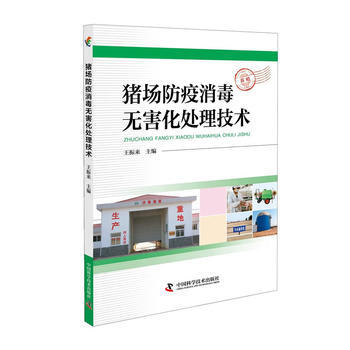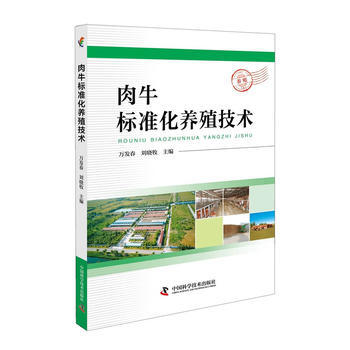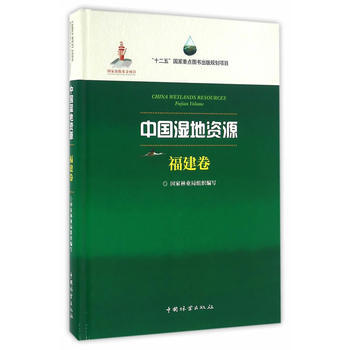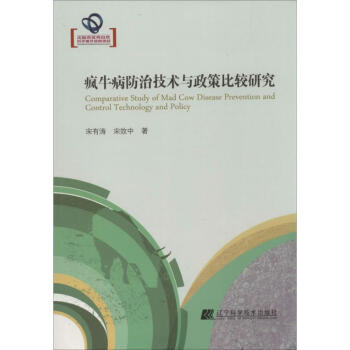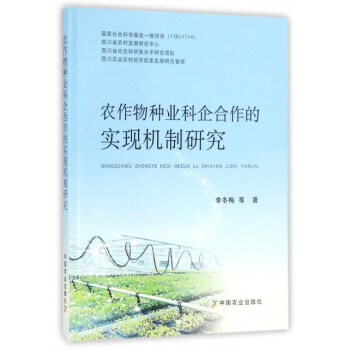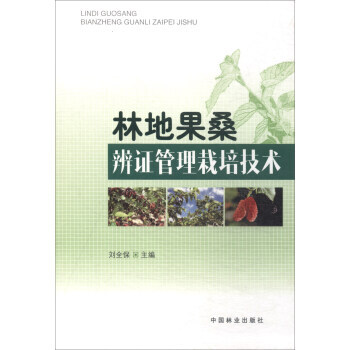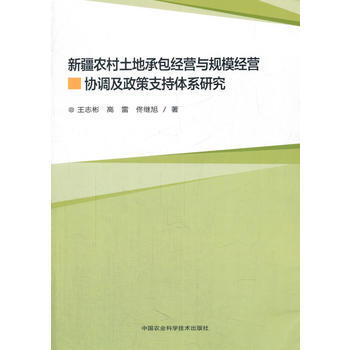具体描述
基本信息
书名:农民专业合作社会计实务同步技能训练
定价:35.50元
售价:23.1元,便宜12.4元,折扣65
作者:辛子军,董云鹏
出版社:中国农业出版社
出版日期:2017-11-01
ISBN:9787109230262
字数:
页码:
版次:1
装帧:平装-胶订
开本:16开
商品重量:0.4kg
编辑推荐
内容提要
《农民专业合作社运营实务/新型职业农民示范培训教材》遵循“实用、适用、够用”的原则,着力体现时代性和示范性的特点,以农民郭生旺在创办农民专业合作社及管理合作社过程中遇到的各种问题为线索,采取项目问题的编写方式,以解决实际问题。《农民专业合作社运营实务/新型职业农民示范培训教材》运用大量现实、生动的案例,重点阐述了合作社的功能、合作社的创建流程、合作社的组织管理、合作社的生产经营管理、合作社的产品营销、合作社的财务管理、合作社的发展、对合作社的政策支持、合作社的信息化建设等内容。
《农民专业合作社运营实务/新型职业农民示范培训教材》可作为新型职业农民示范培训教材,也可供合作社负责人培训、农村干部培训、农村职业教育培训使用,还可作为合作社经营管理相关人员的自学教材。
目录
作者介绍
文摘
序言
rural cooperative accounting practical skills synchronized training In the dynamic landscape of rural economic development, agricultural professional cooperatives have emerged as vital engines driving modernization, innovation, and collective prosperity. These organizations, formed by farmers themselves, pool resources, share expertise, and collectively engage in production, processing, marketing, and services. Their success hinges on a robust and efficient operational framework, and at its core lies the indispensable discipline of accounting. This book, "Rural Cooperative Accounting Practical Skills Synchronized Training," is meticulously crafted to equip individuals with the comprehensive knowledge and practical proficiencies required to navigate the complexities of cooperative accounting. It delves deep into the theoretical underpinnings of cooperative finance and management, while simultaneously emphasizing the hands-on application of accounting principles and techniques within the unique context of these organizations. I. Foundations of Cooperative Accounting: Building a Solid Understanding The journey begins with establishing a firm grasp of the fundamental concepts that differentiate cooperative accounting from traditional business accounting. We explore the inherent principles of cooperativism – member participation, democratic control, economic participation, and autonomy – and how these principles translate into specific accounting treatments and reporting requirements. This section meticulously details: The Nature and Characteristics of Agricultural Cooperatives: Understanding the legal structures, governance models, and operational objectives of various types of agricultural cooperatives (e.g., supply, marketing, service, credit) is paramount. This foundational knowledge informs the subsequent accounting discussions. We will examine how the member-centric nature of cooperatives influences asset ownership, profit distribution, and member equity management, distinguishing them from shareholder-driven corporations. Key Accounting Principles and Standards for Cooperatives: While adhering to general accounting principles (e.g., accrual basis, historical cost, conservatism), cooperative accounting incorporates specific considerations. This includes the accounting for member contributions, patronage refunds (patronage dividends), member reserves, and the distinction between member business and non-member business. We will thoroughly dissect relevant national accounting standards and any specific pronouncements or interpretations applicable to cooperative entities. The Chart of Accounts for Agricultural Cooperatives: A well-designed chart of accounts is the backbone of any effective accounting system. This book provides detailed guidance on establishing and customizing a chart of accounts tailored to the specific needs of agricultural cooperatives. This includes common account categories such as member equity accounts, patronage refund payable, revenue from sales of agricultural products, cost of goods sold, operating expenses, and non-operating income. We will emphasize the importance of segregation for different types of revenue and expenses to facilitate accurate performance analysis and reporting. Internal Controls and Risk Management in Cooperative Accounting: The integrity of financial information is paramount. This section will explore the critical role of internal controls in safeguarding cooperative assets, preventing fraud, and ensuring the accuracy and reliability of financial records. We will discuss the design and implementation of control procedures related to cash receipts and disbursements, inventory management, accounts receivable and payable, and fixed asset management, with a focus on mitigating risks inherent in cooperative operations. II. Core Accounting Processes and Techniques: Mastering the Day-to-Day Operations Moving beyond theoretical foundations, this section delves into the practical, hands-on execution of accounting tasks within an agricultural cooperative. It provides step-by-step guidance and illustrative examples to ensure learners can confidently perform essential accounting functions. Recording Member Transactions: This is a cornerstone of cooperative accounting. We will detail the procedures for recording member capital contributions, including initial investments and subsequent capital calls. Furthermore, we will meticulously explain the process of recording member transactions related to sales of produce to the cooperative, purchases of supplies from the cooperative, and any service fees or charges levied. Emphasis will be placed on tracking these transactions at the individual member level to facilitate accurate patronage refund calculations. Inventory Management and Costing: The efficient management of inventory, whether raw materials, work-in-progress, or finished goods, is crucial for profitability. This section covers various inventory valuation methods (e.g., FIFO, weighted-average) and their application in the cooperative context. We will also explore the specific challenges of accounting for agricultural inventory, considering factors like perishability, seasonal production, and quality grading. Procedures for conducting physical inventory counts and reconciling perpetual inventory records will be thoroughly explained. Revenue Recognition and Sales Accounting: Accurately recognizing revenue is vital for assessing performance. This section will guide learners through the principles of revenue recognition as applied to sales of agricultural products and services provided by the cooperative. We will detail the process of preparing sales invoices, recording sales transactions, and managing accounts receivable. Special attention will be given to accounting for consignment sales and other complex sales arrangements common in agricultural markets. Cost Accounting and Expense Management: Understanding and controlling costs is essential for maximizing member benefits. This section will cover the principles of cost accounting, including the classification of costs (direct, indirect, variable, fixed) and their allocation to different products or services. We will explore methods for tracking operating expenses, such as labor, materials, utilities, and marketing, and discuss strategies for cost control and reduction. This includes analyzing cost variances and identifying areas for efficiency improvements. Payroll and Employee Benefits Accounting: Cooperatives often employ staff to manage operations. This section will detail the processes for calculating wages and salaries, deducting taxes and other withholdings, and recording payroll expenses. We will also cover the accounting for employee benefits, such as health insurance, retirement plans, and workers' compensation. Compliance with relevant labor laws and tax regulations will be emphasized. Fixed Asset Accounting: The acquisition, depreciation, and disposal of fixed assets (e.g., machinery, buildings, land) are significant accounting activities. This section will explain the principles of capitalizing fixed assets, calculating depreciation using various methods (e.g., straight-line, declining balance), and accounting for asset disposals. We will also address the unique considerations for agricultural assets, such as farm equipment and land improvements. III. Financial Reporting and Analysis: Communicating Performance and Value This section focuses on the crucial aspect of translating accounting data into meaningful financial reports and using those reports for informed decision-making and member communication. Preparing Financial Statements: Learners will be guided through the preparation of key financial statements, including the Statement of Financial Position (Balance Sheet), Statement of Comprehensive Income (Income Statement), Statement of Cash Flows, and Statement of Changes in Member Equity. We will pay particular attention to the specific disclosures required for cooperative entities, such as the presentation of member equity and patronage refunds. Accounting for Patronage Refunds: A unique and vital aspect of cooperative accounting is the distribution of patronage refunds. This section will provide a comprehensive guide on calculating patronage refunds based on member business volume and the cooperative's net earnings. It will detail the accounting entries required to record patronage refund allocations, distributions in cash or allocated equity, and any withholdings for taxes or other purposes. Different methods of patronage refund calculation and distribution will be explored. Member Equity and Capital Management: Understanding and managing member equity is central to cooperative governance and financial health. This section will cover the accounting for different classes of member equity, the issuance and redemption of member shares or certificates, and the accumulation of retained earnings or reserves. We will discuss strategies for maintaining adequate capital levels while ensuring fair returns to members. Financial Analysis and Performance Measurement: Beyond simply preparing reports, this section equips learners with the skills to analyze financial statements to assess the cooperative's performance, liquidity, solvency, and efficiency. We will introduce key financial ratios and metrics relevant to agricultural cooperatives, such as return on member equity, operating margin, inventory turnover, and debt-to-equity ratios. The interpretation of these ratios in the context of cooperative goals will be emphasized. Budgeting and Financial Planning: Effective financial management requires forward-looking planning. This section will introduce the principles of budgeting and financial planning for agricultural cooperatives. We will explore the process of developing operating budgets, capital budgets, and cash flow forecasts, and discuss how these plans inform operational decisions and resource allocation. Taxation of Agricultural Cooperatives: Understanding the tax implications of cooperative operations is essential for compliance and optimizing financial outcomes. This section will provide an overview of relevant tax laws and regulations applicable to agricultural cooperatives, including specific provisions related to patronage refunds and deductions. While not a substitute for professional tax advice, it aims to equip learners with a foundational understanding of tax considerations. IV. Advanced Topics and Practical Application: Enhancing Efficiency and Compliance This concluding section explores more advanced concepts and real-world considerations to further enhance learners' proficiency and ensure their preparedness for diverse scenarios. Accounting Information Systems (AIS) for Cooperatives: Modern accounting relies heavily on technology. This section will discuss the selection, implementation, and utilization of accounting software and information systems tailored to the needs of agricultural cooperatives. We will explore features such as member management modules, inventory tracking capabilities, and automated financial reporting. Auditing and Compliance: Understanding the role of internal and external audits is crucial for ensuring accountability and compliance. This section will provide an overview of audit processes and the importance of maintaining proper documentation to facilitate audits. It will also touch upon regulatory compliance requirements specific to agricultural cooperatives. Case Studies and Practical Scenarios: To solidify learning, the book will incorporate detailed case studies and practical scenarios that mirror real-world challenges faced by agricultural cooperatives. These exercises will require learners to apply the principles and techniques learned throughout the book to solve problems, prepare financial statements, and make informed recommendations. Ethical Considerations in Cooperative Accounting: Integrity and ethical conduct are paramount in any profession, and accounting is no exception. This section will highlight the ethical responsibilities of cooperative accountants and the importance of upholding professional standards to maintain trust and transparency within the cooperative and among its members. This comprehensive training program is designed to be an indispensable resource for cooperative managers, board members, accounting staff, and aspiring professionals in the agricultural sector. By mastering the practical skills and understanding the underlying principles of cooperative accounting, individuals can significantly contribute to the financial health, operational efficiency, and long-term success of their agricultural cooperatives, fostering a more prosperous future for their members and rural communities.





